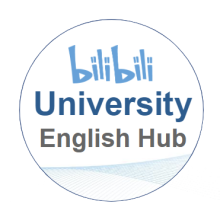难度:初级
在学术的理想世界中,研究是客观公正的,事实就是事实,而学术作者是这些事实的客观报道者和分析者。
而在现实中,作者需要平衡一些利益和行动。例如,常医生是位执业医师,并在期刊审查委员会任职,同时获得一家制药公司的研究经费,偶尔代表某医疗器械公司发言。专业人士在社会中扮演很多的角色,这是很自然的;有多种收入来源也是无可非议的。然而,如果某一角色的动机侵犯到另一角色的职责,便会产生利益冲突。
如果常医生获得制药公司A的经费,他可能会自觉或下意识的,报告关于有利于A公司药物的调查结果。甚至在其他药物更有疗效、更合适的情况下,他可能会给他的病人开A公司的处方药。
只因为常医生获得A公司的经费,但这并不意味着他一定会报告有利于A公司的研究结果,也并不意味着他不能调查研究A公司的产品。利益冲突只是不当行为的潜在可能:加大透明度有利于建立信任。利益冲突就是人与人之间的关系,不论好坏,可能会影响研究的客观性。
利益冲突是学术出版的一个正常部分。著名的研究人士通常会公开利益冲突; 同时,他会遵守职业道德、诚实可靠地进行研究。在投稿期刊、发表论文时,公开利益冲突,特别是科研经费,读者会留意这项研究经过个人努力,并认为应仔细检查他们的研究结果。然而,公开利益冲突也有一个积极的方面:这是一种诚信的行为,这说明作者没有什么可隐瞒的、是可信任的。
科技期刊对利益冲突非常重视。期刊作者在投稿时,通常需要在一个单独的部分陈述所涉及的利益冲突。
有时,此陈述很简单:“Conflicts of interest: None(利益冲突:无)”,或者使用另一种表达:“The authors have no conflicts of interest to report (作者没有利益冲突进行报告)”。要看一下你要投的期刊在作者指南一页对利益冲突的陈述是否有特殊的格式要求,如果没有,任选以上一种就可以了。
Download Tip Here:  研究的利益衝突?
研究的利益衝突?
Uni-edit English Writing Tip 008: Do you have a conflict of interest?
Difficulty: Easy
In an ideal world, research is objective and impartial. The facts are the facts, and the academic author is the objective reporter and analyzer of these facts.
In the real world that you and I live in, authors have many interests and activities to balance. For example, Doctor Chang may be a practicing physician, serve on a journal review board, receive research funding from a pharmaceutical company, and occasionally speak on behalf of a medical device company. It is natural for professionals to serve many roles in society, and having several sources of income is not prohibited. However, when the motivation of one role infringes upon the duties of another role, this can present a conflict of interest.
If Doctor Chang receives funding from Pharmaceutical Company A, he might want to, consciously or subconsciously, report favorable findings about one of Company A’s drugs. He may be encouraged to prescribe the drug to his patients, perhaps when another drug would be more effective or appropriate.
Just because Doctor Chang receives funding from Company A does not mean he will always report results that are favorable to Company A, nor does it mean he cannot research investigating Company A’s products. A conflict of interest is just the potential for misconduct: a place where extra transparency can help build trust. A conflict of interest is where human relationships, for better or worse, could affect the objectivity of research.
Conflicts of interest are a normal part of academic publishing. A reputable researcher usually has conflicts of interest to report; however, he conducts his research honestly and ethically. By disclosing conflicts of interest, especially research funding, in your journal submissions and papers, readers are alerted that research is a human endeavor, and that the research results should be examined carefully. However, there is a positive aspect too. Declaring conflicts of interest is an act of honesty: it says the author has nothing to hide, and can be trusted.
Scientific journals take conflicts of interest very seriously. Journal authors are typically required to state any conflicts of interest in a separate section when they submit manuscripts.
Sometimes this statement is as simple as “Conflicts of Interest: None”. A good sentence meaning the same thing is “The authors have no conflicts of interest to report”. See if your target journal has a preferred format for stating conflicts of interest in their Instructions for Authors page; if not, one of the options above should suffice.


